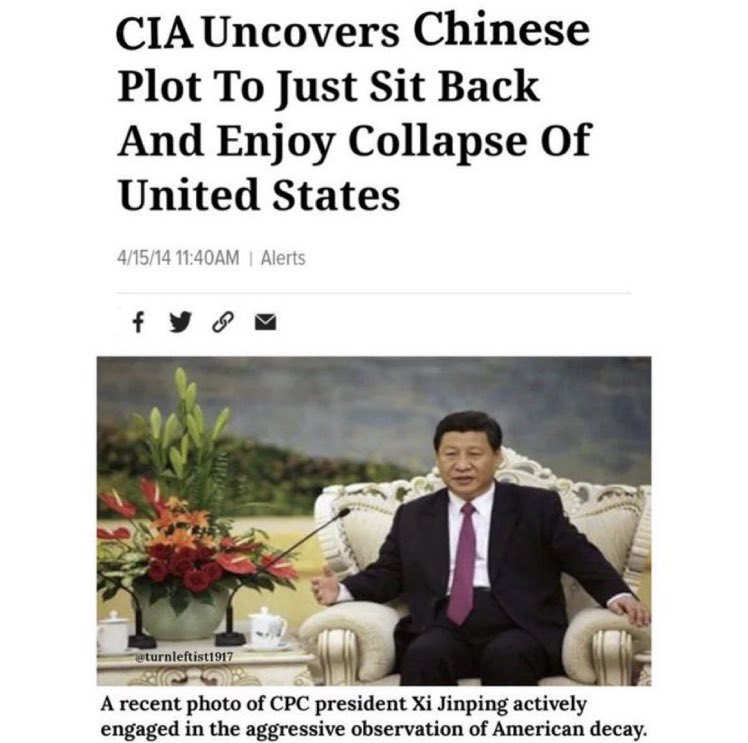ReasonableMatic
................................
President Trump’s across-the-board tariffs will change the world order in many ways, and one winner is already emerging: Xi Jinping.
The Chinese President has had an excellent week.
This is only partly a story about the retaliatory measures Beijing announced Friday following Wednesday’s “Liberation Day” performance at the White House. China will impose a blanket 34% tariff on imports from the U.S. starting next week, matching Mr. Trump’s latest addition to his tariffs on China.
Beijing also added a couple dozen U.S. companies to various regulatory blacklists subject to trade, investment or export restrictions. Mr. Xi is slapping export controls on several rare-earth minerals critical for high-tech manufacturing. Oh, and a smattering of regulatory investigations for antidumping and the like are brewing, targeting American firms.
This is how trade wars escalate, which might be why global markets reacted badly to this retaliatory step—perhaps the first of many around the world. French President Emmanuel Macron has asked European companies not to invest in the U.S. Don’t assume this trade war will be easy for the U.S. to win.
Mr. Xi’s economy remains in a precarious state after several years of a real-estate slump and amid rising political tensions with many trading partners. Mr. Xi must believe he will have no problem finding other sources for critical imports, especially since the U.S. is punishing the rest of the world with tariffs.
Meanwhile, China’s authoritarian system means Mr. Xi probably can ride out whatever political or social pain might result from higher unemployment or slower economic growth in a trade war. Congressional Republicans have to face voters in 18 months following whatever fallout comes from Mr. Trump’s tariffs. It’ll help that Mr. Xi can rally nationalist sentiment against the U.S.
What a fabulous change in fortunes for the Chinese leader. Mr. Trump has taken an ax to the economic cords that were binding the rest of the world into an economic and strategic bloc to rival Beijing—and at precisely the moment many countries finally were starting to re-evaluate their economic relationships with China.
In Asia, countries such as Vietnam hoped expanding trade with the U.S. would allow them to wriggle out from under Beijing’s thumb. Not now that Mr. Trump has imposed a 46% tariff on Vietnamese imports. Ditto other countries eager for a relationship with the U.S. to counterbalance Beijing’s influence, such as Thailand (36% tariff), Indonesia (32%) and the Philippines (17%).
Japan and South Korea, crucial U.S. partners in North Asia, were slapped with tariffs of 24% and 25%. Anti-Americanism remains a potent political force in many of these places, and expect the sentiment to grow. Beijing with its giant market is an alternative.
Ditto in Europe, where the 27 countries of the European Union face a 20% tariff and not even the special relationship could spare Britain the baseline 10% tax. The U.S. has devoted years of diplomacy to discouraging European countries from economic overreliance on China. This finally was starting to pay off in greater European skepticism of closer ties with Beijing. Now it’s only a matter of time before the trade missions to China from France, Germany and elsewhere pick up again.
Canadian Prime Minister Mark Carney summed up the global mood: “Our old relationship of steadily deepening integration with the United States is over.” Noting the end of an 80-year period of American economic leadership, Mr. Carney added: “While this is a tragedy, it is also the new reality.”
Mr. Xi and his Communist comrades have long believed the West is weak, divided and in retreat. He will see this week as confirmation, and he won’t have to do much to exploit those divisions
PREVIOUSLY:










